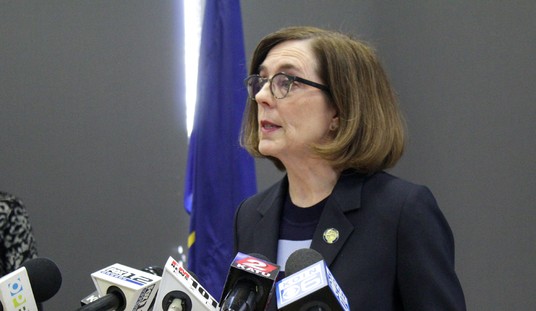Stung by massive electoral losses in last week’s midterms, Barack Obama has attempted to shift to the center on one major issue facing Congress in its lame-duck session opening later this month — tax increases scheduled to hit at the first of the year. Republicans, however, pushed back almost immediately to the strategy Obama floated this weekend in attempting to “decouple” the higher bracket tax rates from the rest of the tax rates. Obama favors a permanent repeal of the tax hikes for middle- and working-class workers, but only wants a temporary extension of the top rates:
President Obama said a Republican proposal to preserve the full array of Bush administration tax cuts for two more years presents a “basis for conversation” that could lead to a compromise as lawmakers prepare to meet next week for a high-stakes showdown over taxes.
However, a senior House Republican on Sunday flatly rejected the option most favored by the White House: decoupling the Bush tax cuts that benefit the wealthy from the cuts that benefit the vast majority of Americans by extending each set of provisions for a different period of time.
“No, I am not for decoupling the rates,” Rep. Eric Cantor (R-Va.), the No.2 Republican in the House, said on “Fox News Sunday.” He echoed the GOP argument that such a move virtually would guarantee the eventual expiration of tax breaks in the upper brackets, where some of the most successful small businesses pay taxes.
“I am not for raising taxes in a recession, especially when it comes to the job creators that we need so desperately to start creating jobs again,” Cantor said. “I am not for sending any signal to small businesses in this country that they’re going to have their tax rates go up.”
McClatchy’s report positions the GOP as pressing a hard line on this issue, saying that extended uncertainty will continue to limit economic expansion, especially in the small-business sector:
Republican leaders in both the House and the Senate said Sunday there would be no compromise with Democrats on whether to extend Bush-era tax cuts for the nation’s wealthiest taxpayers. President Barack Obama has said he wants to extend the tax cuts for taxpayers with a combined annual income of less than $250,000, but that the cuts shouldbe eliminated for people making more than that. He’s suggested there might be room for compromise in discussions with Republicans on other tax issues. But both Rep. Eric Cantor, R-Va., who’s expected to become the majority leader in the House when the new Congress is sworn in next year, and Senate Minority Leader Mitch McConnell said on Sunday news programs that they’d insist on an extension of the tax cuts for wealthy. McConnell said that higher taxes on upper income earners would harm small businesses.
All of this is intended on firming up bargaining positions ahead of next week’s reopening of Congress, where this issue and the budget will occupy most of the time left before the end of the year. It demonstrates the political impact of the midterms; prior to the election, John Boehner had to answer whether he’d take half a loaf and abandon the defense of the current top rate in order to get the other hikes rescinded. Now the administration and the GOP are arguing whether the rescission of the tax hikes on all rates should be made permanent, or extended a couple of years in the case of the top rate. The debate has shifted significantly in the GOP’s favor.
That doesn’t mean that the White House has become any more honest about it, however. Dan Mitchell of the Cato Institute dismembers the “tax cuts cost too much” argument from White House economic advisor Austan Goolsbee, calling them “corrupt” and based on the false assumption that there is any cost at all in maintaining the status quo. He also underscores once again that the issue isn’t tax cuts but tax hikes:
These tax rates have been in place for almost a decade. We’re talking about tax hikes that the Obama administration wants in order to seize more capital for their misguided policies. It’s well worth noting that the $700 billion Goolsbee warns the extensions of current tax rates will “cost” in ten years is less than the stimulus package passed by Congress will spend in two years, and a mere pittance of the $1.1 trillion added to the FY2010 budget from FY2007 by Obama and a Democratic Congress.
I’d guess that the top rate ends up getting “decoupled” in the lame duck session and extended two years. That gives Obama a chance to punt on the issue all the way through his re-election campaign, whether he wins or not. If the Republican candidate wins in 2012, and especially if they retake the Senate, the top rate can be addressed either in that lame-duck session or the beginning of the 113th Congress in 2013.








Join the conversation as a VIP Member